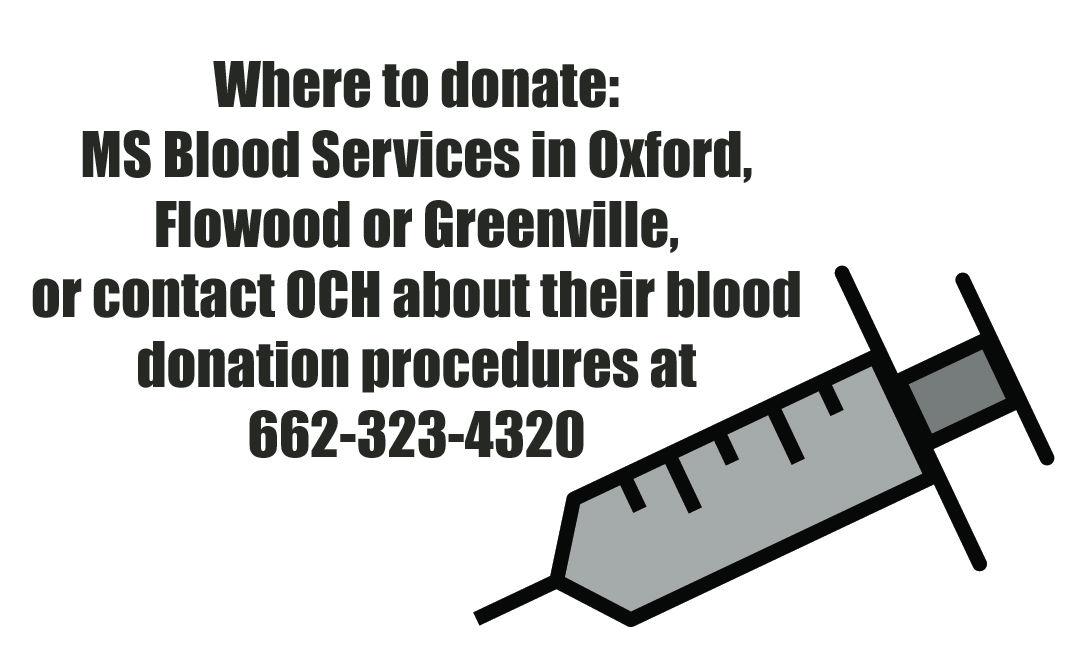According to MS Blood Services, a blood donation collection organization in Mississippi, there is a severe shortage of blood donations across Mississippi.
When someone is in a car accident, on average, it takes 50 units of blood to replace what was lost. To put this into perspective, one person’s donation is one unit of blood. This means 50 people would have to donate once to help save one person’s life. Considering the number of car accidents that occur, it is not surprising there is a blood shortage.
According to MS Blood Services’ website, they only have A+ blood in a good supply. All other types are in critical or severe need. This shortage is due to a lack of donors and an increase of need.
During the holiday season, people do not tend to donate as much blood as much as the rest of the year. Unfortunately, winter months are a crucial time for blood usage. Bad weather during the holidays increases the amount of accidents, which subsequently increases the need for blood.
In a public statement, Vitalant, another blood donation collection organization in Mississippi, said, “Blood donations collected in late December and early January were down 47 percent compared to the first two weeks of December.”
Besides accidents, there are many uses donated blood including surgeries, cancer patients, disease and blood disorders. MS Blood Services states on their website there are hundreds of pints of blood needed every day.
The donation process is simple. Donors must allot about an hour of time depending on the number of donors already in the center or bus. A donor must also eat a balanced meal and bring their ID. There are many donation centers across the state. MS Blood Services even travels in a bus to meet donors for convenience, which comes to the MSU campus about twice a semester.
There is an option to donate to a specific patient. When donating blood, if the donor gives a certain code, their donation will go directly to that patient. The reason to donate directly is to lower medical costs.
Not only does giving blood save a lives, but it also helps those in financial need. To receive one pint of blood in a hospital, it can cost anywhere between $130 and $150. By donating with a code, the patient will receive the blood for free.
While the Mississippi blood crisis it is not devastating the area of Starkville, there are still residual effects. Tom Sheward, the director of laboratory services at OCH Regional Medical Center, said the state-wide blood crisis has yet to have a major effect on their services, but does occasionally cause problems.
“It is rare, but sometimes we have to use type-compatible blood instead of type specific, like O-,” Sheward said.
Not only does donating help others, but it also helps the donor. St. Mary’s Medical Center explains how people who consistently donate blood have a lowered risk of heart attacks, cancer and strokes.
There are many reasons to donate: to save another’s life and preserve your own. If citizens do not go to donate, the problem may start greatly impacting the MSU and Starkville communities.
To host a local blood drive, those interested can contact MS Blood Services or Vitalant. They are friendly to speak to and eager to help make things easier to donate blood. If someone wants to donate right away, MS Blood Services has locations in Oxford, Flowood and Greenville, or contact a local hospital and ask about their blood donation procedures.






















































































